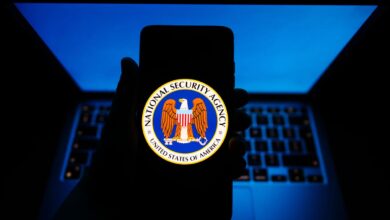13 Cyber Security Measures Your Small Business Must Take

5. Protect Your Network With a Firewall
What separates a firewall from an antivirus program? Well, a firewall protects hardware as well as software, making it a boon to any company with its own physical servers. But a firewall also works by blocking or deterring viruses from entering your network, while an antivirus works by targeting the software affected by a virus that has already gotten through. They work well together, in other words.
Putting up a firewall helps protect a small business’s network traffic – both inbound and outbound. It can stop hackers from attacking your network by blocking certain websites. It can also be programmed so that sending out proprietary data and confidential emails from your company’s network is restricted.
Just getting a firewall isn’t enough: You’ll also have to regularly check that it’s equipped with the latest updates for software or firmware.
Top options include Bitdefender, Avast, and Norton, and many brands will include a firewall in a package with other useful security offerings such as VPNs, password managers, and automatic data backups on the cloud.
6. Install Encryption Software
If you deal with credit card data, bank accounts, and social security numbers on a daily basis, it makes sense to have an encryption program in place. Encryption keeps data safe by altering information on the computer into unreadable codes.
Encryption is designed with a worst-case scenario in mind: Even if your data does get stolen, it would be useless to the hacker as they wouldn’t have the keys to decrypt the data and decipher the information. That’s a smart security feature in a world where billions of records get exposed every month.
Top options here include Microsoft BitLocker, IBM Guardium, and Apple FileVault — they’re all high-quality, so just pick your favorite computer company and get in touch for a free trial or demo of what they have to offer.
7. Ignore Suspicious Emails and Texts
Sometimes the simplest security measures are the best: Make it a habit to never open or reply to suspicious-looking emails, even if they appear to be from a known sender. Even if you do open the email, do not click on suspicious links or download attachments. Doing so may make you a victim of online financial and identity theft through a “phishing” scam, a term that refers to a false message sent to bait the victim into freely giving their login data to the scammer.
Phishing emails are one of the more nefarious ways technology impacts our daily lives. Phishing emails appear to come from trustworthy senders, such as a bank or someone you may have done business with. Through it, the hacker attempts to acquire your private and financial data like bank account details and credit card numbers.
Nowadays, hackers are willing to go through a myriad of different digital avenues to find potential victims – and you should treat texts from unknown numbers with exactly the same, high level of caution, as well as suspicious-looking WhatsApp messages.
For further security, make sure you change your email password every 60 – 90 days. Additionally, refrain from using the same password for different email accounts, and never leave your password written down.
8. Limit Access to Critical Data
Keeping the number of people with access to critical data to a minimum such as the company’s CEO, CIO, and a handful of trusted staff is an important security method. This will minimize the fallout from a data breach, should it occur, and further reduce the possibility of bad actors from within your organization gaining unauthorized access to data.
The Principle of Least Privilege – that employees should have access to the minimal amount of company resources needed to complete their work – should be enforced at all times.
Siloing up what data is accessible – and to whom – is vital to keeping it safe from insider threats. But informing employees of the implementation of such a security method so they can take a proactive approach and alert their managers to examples of poor data hygiene is also important.
Formulate a clear plan that mentions which individual has access to which sensitive information for increased accountability, and communicate it to your entire team, so that everyone is on the same page.
9. Back Up Data Often
Your business should either manually back up all data to an external hard drive or the cloud, or simply schedule automated backups to ensure that your information is stored safely. That way, even if your systems are compromised, you still have your information safe with you – which is why it’s one of the most important security methods to implement.
This feature is frequently baked into software programs that handle sensitive data, but it won’t hurt to run an audit of all your business communications in order to ensure that no single point of failure can erase months or years of historical data.


